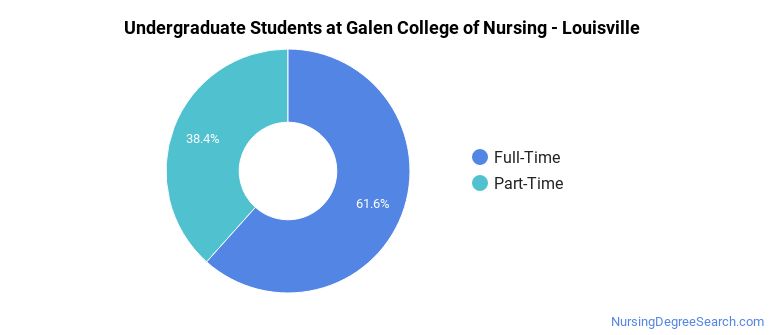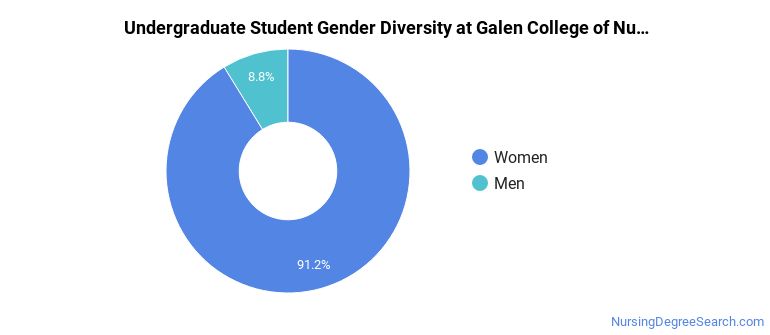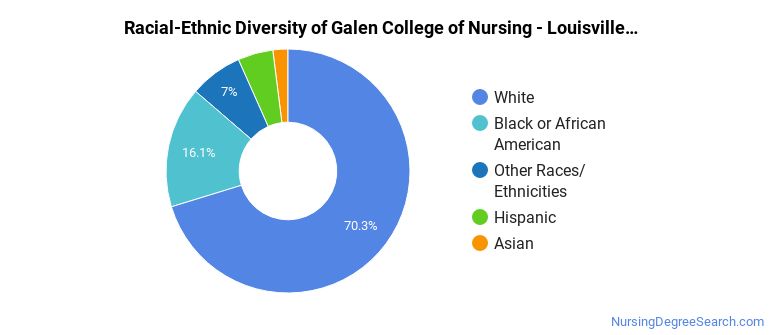Galen College of Nursing - Louisville Nursing Programs
Located in Louisville, Kentucky, Galen College of Nursing - Louisville is a private for-profit institution. Louisville is a great location for students who prefer city over country life.
Where Is Galen College of Nursing - Louisville?

Contact details for Galen College of Nursing - Louisville are given below.
| Contact Details | |
|---|---|
| Address: | 3050 Terra Crossing Blvd., Louisville, KY 40245 |
| Phone: | 502-410-6200 |
| Website: | www.galencollege.edu |
How Do I Get Into Galen College of Nursing - Louisville?
You can apply to Galen College of Nursing - Louisville online at: apply.galencollege.edu/
Can I Afford Galen College of Nursing - Louisville?
Student Loan Debt
It's not uncommon for college students to take out loans to pay for school. In fact, almost 66% of students nationwide depend at least partially on loans. At Galen College of Nursing - Louisville, approximately 80% of students took out student loans averaging $6,813 a year. That adds up to $27,252 over four years for those students.
Galen College of Nursing - Louisville Undergraduate Student Diversity

There are also 138 graduate students at the school.
Gender Diversity
Of the 1,755 full-time undergraduates at Galen College of Nursing - Louisville, 9% are male and 91% are female.

Racial-Ethnic Diversity
The racial-ethnic breakdown of Galen College of Nursing - Louisville students is as follows.

| Race/Ethnicity | Number of Grads |
|---|---|
| Asian | 35 |
| Black or African American | 282 |
| Hispanic or Latino | 82 |
| White | 1,233 |
| International Students | 0 |
| Other Races/Ethnicities | 123 |
Galen College of Nursing - Louisville Nursing Concentrations
The table below shows the number of awards for each concentration.
| Major | Associate’s | Undergraduate Certificate | Bachelor’s | TOTAL |
|---|---|---|---|---|
| Registered Nursing | 327 | 0 | 1,068 | 1,395 |
| Licensed Practical/Vocational Nurse Training | 0 | 48 | 0 | 48 |
| TOTAL | 327 | 48 | 1,068 | 1,443 |
References
*The racial-ethnic minorities count is calculated by taking the total number of students and subtracting white students, international students, and students whose race/ethnicity was unknown. This number is then divided by the total number of students at the school to obtain the racial-ethnic minorities percentage.
More about our data sources and methodologies.
